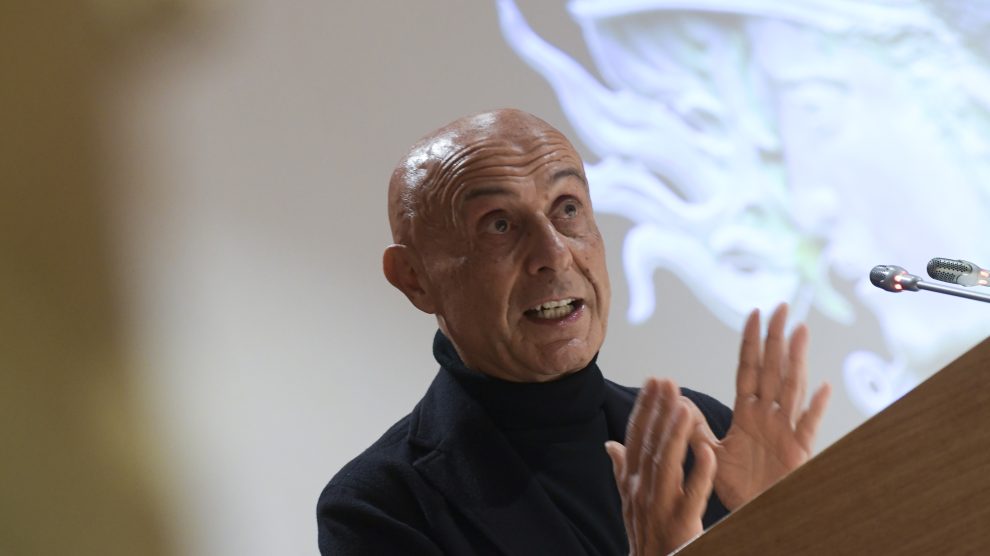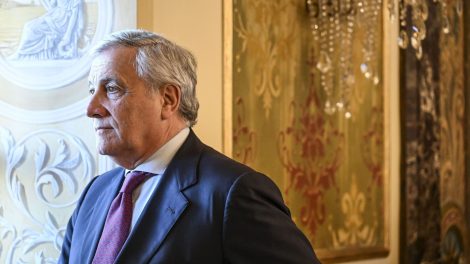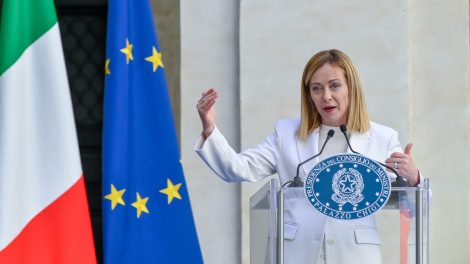THE TAKEAWAYS
- Russia’s invasion of Ukraine is entering a stalemate on the ground, but the looming food crisis is a serious threat to European stability.
- The Kremlin’s continued blockade of Ukrainian wheat would upend food security in the MENA area, which would cause a migration wave towards Europe.
- That’s part of Vladimir Putin’s strategy: a humanitarian pincher, regardless of lost lives, to up the pressure on Europe.
- It also directly affects European energy, food and security.
- Libya is an especially good example of a pressure point, as it’s politically unstable, its rich oil wells are blocked, and it imports 90% of its wheat from Ukraine.
- Mr Putin’s blockade is a geopolitical gamble, and some countries are already moving to protect themselves. That’s redrawing alliances and international relations.
- Europe must rise to the occasion and avert the food crisis by negotiating, without capitulating to Russia.
Mr Minniti, is President Putin winning?
No. We are facing a prolonged stalemate. [Mr] Putin has changed his approach; he focused on a narrower front. And this gives rise to the spectre of a long-term war of attrition. Taking the Donbas will not be easy. Occupying a territory that remains largely hostile is a feat for any occupier.
What doesn’t work in the tsar’s plans?
The army. There is obvious wear and tear on the Russian military apparatus, both in terms of people and equipment. It is no mystery that old tanks have been reactivated for the invasion. Not to mention the new measures to bring conscripts to the front.
This is the field. Then there is another front, the domestic front. How long can Western public opinion hold out before it shatters?
We have to be faster. We missed a crucial appointment.
Which one?
May 9. The Russian military parade inaugurated phase two of the war. It was supposed to be an ode to Russian strength and victory in the Donbas, but things turned out differently. That was the moment for a diplomatic counter-offensive by the West, a strategy.
Where do we start from?
The grain corridors. If [Mr] Putin insists on blocking the ports, he consciously decides to globalise the humanitarian crisis. It is a choice that changes everything. It entails prolonging the war and shouting a conviction to the world: I will be the one to win it.
Can it become a boomerang?
It is a gamble. The second, after that night of February 24. [Mr] Putin would also send the bill for his war to a number of countries that have so far remained indifferent or silent, perhaps abstaining at the UN.
What should we expect?
If the wheat crisis were to continue for weeks, even months, a wave of instability could pour into the Mediterranean. History is a teacher: when there is no bread, there is social unrest. Then comes political destabilisation, sometimes even a humanitarian crisis.
Not exactly good news for Italy, which is gambling its energy future in this sector.
The stakes are even higher. The fate of three interlinked crises will be decided in the Mediterranean: energy, indeed, as well as food and security. The real alternative to Russian gas and oil will have to be built in this sea, but the war is forcing us to rethink our plans. Allow me to give you an example.
Please do.
Libya. It is a destabilised country, it has two governments, and some speak of dividing it into two spheres of influence. It is one of the biggest oil producers in the Mediterranean, but the wells have stopped. And where does it import 90% of the grain? Ukraine.
A perfect domino.
It is globalisation put into practice. A vital piece of the exit strategy in Ukraine plays out in the Mediterranean.
What, then, of Europe?
Europe is at a historic crossroads. It has managed the wave of refugees from Ukraine better than expected. In the autumn, [Mr] Putin tested its resistance from Belarus. He probably hoped for a collapse that did not happen back in February.
There is a but.
The war now threatens to bring down another wave on the Old Continent from the south. Europe could end up at the centre of a humanitarian pincer. A momentous challenge to the principle of European solidarity: will the north-eastern countries, which are already under stress, extend their hand? One has to ask oneself.
How do we get out of it?
By opening a path of negotiation. Beware: this does not mean capitulation, lest there be any misunderstanding. And here’s where we circle back to the wheat: Russia must be made to face up to its responsibilities. Nothing can coalesce the international community’s interests like the shadow of a global food crisis.
Will this be enough to move the non-aligned?
They are already moving to protect themselves. Take India: it has an iron-clad partnership with Russia; it has an agreement to buy oil from Moscow at low prices. Yet it has decided to stop grain exports to ensure its food security. [Mr] Putin is creating a world in which States have only one concern: to exist.
Let’s say Mr Putin agrees to release the grain. What happens?
It would be risky, no doubt about it. As soon as Ukrainian ports are de-mined, the Russian military ships would have free access. We need an international corridor; that could open the path to a ceasefire. [Mr] Putin would send a signal to the world: the crisis will remain limited to here.
Then what?
Then we negotiate. Or rather, aggrieved Ukraine negotiates. Hoping that everyone’s goal is the same: not to permanently weaken or defeat Russia, let alone a regime change in Moscow. Rather, to end the invasion now.
Or else?
Europe should prepare for the shock. It will need an economic-solidarity intervention plan for North Africa and a migration compact. Then a diplomatic counter-pincher to encircle Russia. If [Mr] Putin arms the humanitarian crisis, it must be disarmed through diplomacy.





